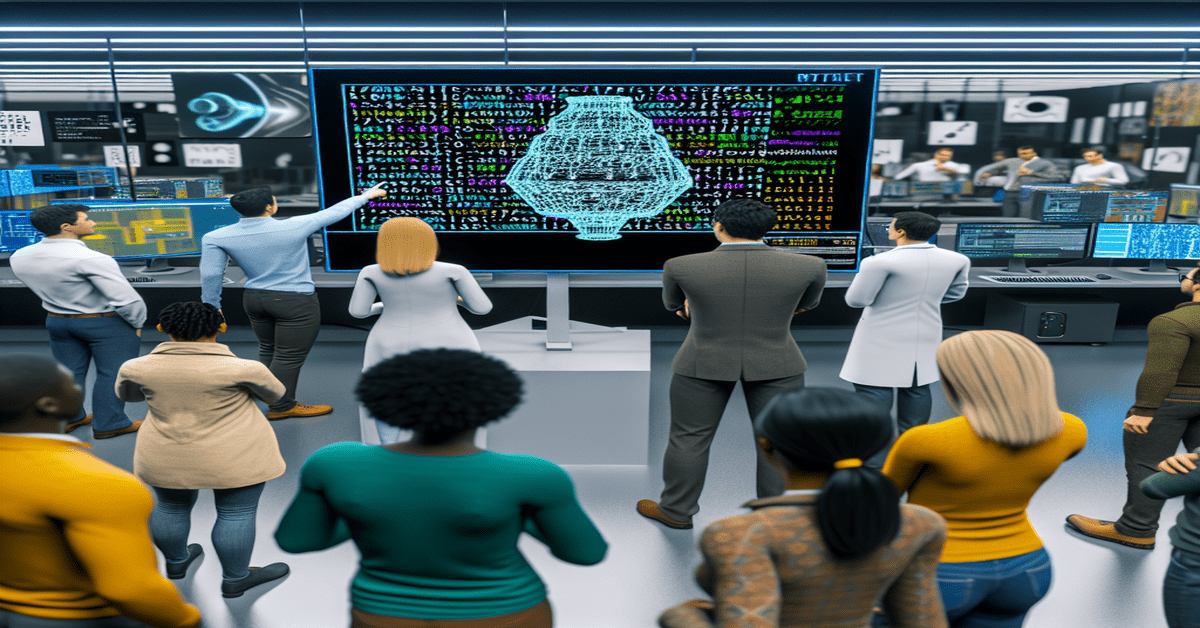Revolutionizing AI Decision-Making: Georgia Tech’s RTNet Mimics Human Cognition
In a groundbreaking development, researchers at Georgia Tech have created a neural network called RTNet that closely mimics AI Mimics Human processes, including confidence levels and variability. This breakthrough has the potential to significantly improve the reliability and accuracy of machine learning by making artificial intelligence (AI) more human-like in its approach.
As humans, we make an astounding 35,000 decisions every single day. These decisions involve evaluating various options, recalling past experiences, and feeling confident about the choices we make. However, traditional neural networks, despite their impressive capabilities, tend to make the same decisions every time they encounter similar input. RTNet aims to bridge this gap by introducing a more human-like approach to AI decision-making.
Training RTNet on Handwritten Digits
The researchers trained RTNet using the well-known MNIST dataset, which consists of a vast collection of handwritten digits. By incorporating Bayesian neural networks and evidence accumulation, RTNet demonstrates decision-making patterns that closely resemble those of humans. The network’s accuracy, response time, and confidence levels were put to the test by 60 Georgia Tech students, and the results were remarkably similar to human performance.
This development holds immense promise for the future of AI and its applications across various industries. By making AI decision-making more human-like, we can enhance the trust and reliability placed in these systems. As Santosh Vempala, a professor in the Georgia Tech School of Computer Science, explains, “AI will be more reliable when it can mimic the way humans think about decisions, considering the implications and having the ability to vary its answers.”
Expanding RTNet’s Capabilities
The researchers at Georgia Tech have ambitious plans for RTNet’s future development. They intend to train the network on more diverse and varied datasets, enabling AI to assist in offloading some of the cognitive burdens we face in our daily lives. By making AI more adept at handling complex decisions, we can streamline processes and make our lives easier and more efficient.
The implications of RTNet extend far beyond the realm of academia. Industries such as healthcare, finance, and transportation stand to benefit greatly from AI systems that can make decisions with human-like confidence and variability. For example, AI-assisted medical diagnosis could become more accurate and reliable, while financial institutions could leverage AI to make more nuanced and context-aware decisions.
Embracing the Future of AI Mimics Human
As we continue to push the boundaries of artificial intelligence, breakthroughs like RTNet serve as a testament to the incredible progress being made in the field. By combining the power of machine learning with the intricacies of human cognition, we are paving the way for a future where AI and humans can work together seamlessly, leveraging each other’s strengths to achieve remarkable feats.
It is essential for businesses and organizations to stay at the forefront of these advancements, embracing the potential of human-like AI decision-making. By doing so, they can gain a competitive edge, improve efficiency, and deliver better outcomes for their customers and stakeholders.
As we eagerly anticipate the further development and implementation of RTNet, it is clear that the future of AI is bright. With each passing day, we inch closer to a world where artificial intelligence can truly understand and mimic the complexities of human decision-making, opening up a realm of endless possibilities.
Stay tuned for more updates on this exciting development, and don’t hesitate to share your thoughts and opinions in the comments below. Together, let’s explore the future of AI and its potential to revolutionize the way we live and work.
#ArtificialIntelligence #MachineLearning #HumanLikeAI AI Mimics Human
- Original article and inspiration provided by SciTechDaily
- Connect with one of our AI Strategists today at Opahl Technologies


